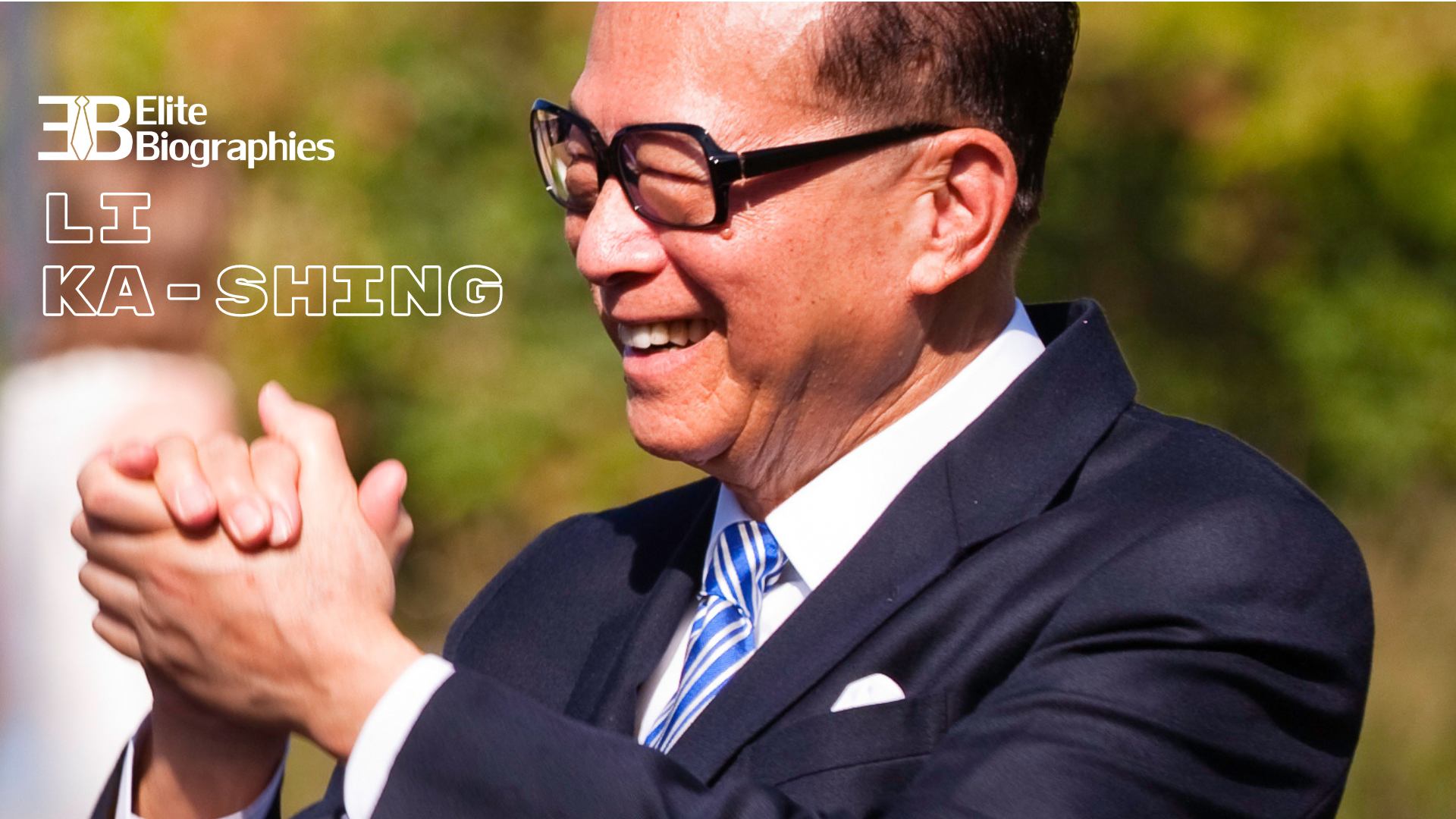
Li Ka-shing is a Hong Kong business magnate, investor, and philanthropist. He is the founder of CK Hutchison Holdings and CK Asset Holdings, two conglomerates that operate in a wide range of industries including telecommunications, real estate, infrastructure, and retail.
Early life
Li was born to Teochew parents named Li Yun-ching and Cheung Bik-chin in 1928 in Chao’an, Chaozhou in Guangdong Province. Due to the Sino-Japanese war, his family had to flee to Hong Kong in 1940 as refugees. However, Li’s father died of tuberculosis, which forced him to drop out of school at the age of 15. He then started working in a plastics trading company, where he worked long hours for 16 hours a day.
In 1950, Li established his own company, Cheung Kong Industries. Although it started as a plastic manufacturing firm, he managed to develop it into a top real estate investment company in Hong Kong that was listed on the Hong Kong Stock Exchange in 1972. Cheung Kong continued to grow by acquiring Hutchison Whampoa and Hongkong Electric Holdings Limited in 1979 and 1985, respectively.
Li’s business empire grew rapidly through a series of acquisitions and expansions. He is known for his aggressive and strategic approach to business, often making large investments in companies and industries that are undervalued or in distress.
Career
In 1950, Li established a plastics manufacturing firm in Hong Kong, utilizing his own savings and money borrowed from relatives, after gaining knowledge of plant operations. He extensively studied trade publications and business news before selecting to produce superior-quality plastic flowers at an affordable price to serve the global market.
Li acquired the skill of blending colors with plastics to make flowers that looked real. Following the overhaul of his factory, he readied it for a visit from a significant foreign client. Fortunately, the client placed a substantial order, and within a few years, Li became Asia’s biggest supplier of plastic flowers, amassing a fortune by selling them.
Li bought a piece of land in 1958 and built his own factory building after realizing that rents would continue to rise. He later purchased more land during the 1967 riots when many people fled Hong Kong and property prices fell. In 1971, Li established Cheung Kong Holdings, a real estate development company, which was publicly listed on the Hong Kong Stock Exchange a year later.
Cheung Kong’s successful bid for development sites above the Central and Admiralty MTR stations in 1977 enabled it to challenge Hongkong Land as the premier property developer in Hong Kong. Li also purchased a major stake in Hutchison Whampoa Company Limited in 1979. To drive forward divestitures of assets, Li agreed to sell The Center, the fifth-tallest skyscraper in Hong Kong, and the Century Link complex in Shanghai.
He is also a noted philanthropist, having donated billions of dollars to various causes including education, healthcare, and disaster relief.
Li is an influential entrepreneur in Asia, leading a business empire that spans across various industries such as transportation, real estate, financial services, retail, and energy and utilities. His company, Cheung Kong Holdings, is a conglomerate that holds significant sway in multiple sectors of the Hong Kong economy, accounting for 4% of the Hong Kong Stock Exchange’s aggregate market capitalization.
Li’s contributions to the business world earned him the first-ever Malcolm S. Forbes Lifetime Achievement Award in Singapore in 2006, presented by Forbes Magazine and the Forbes family. Despite his immense wealth, Li is known for living a modest lifestyle, often wearing simple black dress shoes and an inexpensive Seiko wristwatch.
He resided in the same house for many years in Deep Water Bay, Hong Kong Island, which has become one of the city’s most expensive districts. Li is also recognized as one of Asia’s most generous philanthropists, donating billions of dollars to charitable causes and owning the second-largest private foundation globally after the Bill & Melinda Gates Foundation.
Forbes listed him as one of the world’s most generous philanthropists outside of the US in 2019. Due to his business acumen, Li is frequently referred to as “Superman Li” in Hong Kong.
The Li Ka Shing Foundation has donated over HK$30 billion towards education, medical services, charity, and anti-poverty programs. Li Ka-shing founded Shantou University and the Guangdong Technion – Israel Institute of Technology.
He also made significant donations to institutions like the Hong Kong Polytechnic University, University of Cambridge, Cheung Kong Graduate School of Business, Singapore Management University, University of Hong Kong, University of California, Berkeley, Stanford University, Lee Kuan Yew School of Public Policy, St. Michael’s Hospital in Toronto, University of Alberta, McGill University, and the University of California, San Francisco.
Li also contributed towards relief efforts following disasters such as the Indian Ocean earthquake, the 2008 Sichuan earthquake, and the Nepal earthquake. He donated over HK$3 billion towards the development of Tsz Shan Monastery, an institute of Chinese Buddhist practice and education.

Net Worth
As of 2023, Li Ka-shing has an estimated net worth of over $38 billion, according to Forbes.
Achievement
Li Ka-shing, one of Asia’s most successful entrepreneurs, has received numerous awards and honors throughout his career, including:
Overall, Li’s greatest achievement has been his success as an entrepreneur and business leader, building a massive business empire that has made significant contributions to the Hong Kong economy and beyond.
Related Bios

Charles Brindamour
Charles Brindamour is a Canadian business executive, best known as the President and Chief Executive Officer of Intact F...
Read More
Amer Rasul
Amer Rasul, CPA, CA, MBA, is a trusted financial advisor to top CEOs and CFOs, helping to accelerate growth, streamline ...
Read More
Peter Deeb
As founder and Chairman of Hampton Securities, Peter Deeb has spent nearly 30 years growing the firm into a leading Cana...
Read More
Greg Appelt
Greg Appelt is the CEO of Appelt Properties, a Toronto-based real estate firm. ...
Read More